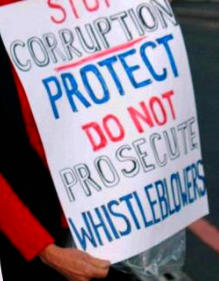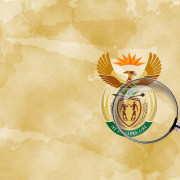|
Getting your Trinity Audio player ready...
|
 In part one we looked briefly at the four main regional and international conventions that inform some of South Africa’s pieces of anti-corruption legislation. In part two we take a closer look at the leading domestic legislation on corruption – the Prevention and Combating of Corrupt Activities Act (12 of 2004) (Precca).
In part one we looked briefly at the four main regional and international conventions that inform some of South Africa’s pieces of anti-corruption legislation. In part two we take a closer look at the leading domestic legislation on corruption – the Prevention and Combating of Corrupt Activities Act (12 of 2004) (Precca).
Precca was written to bring our legislation in line with the UN Convention against Corruption and the AU Convention on Preventing and Combating Corruption, which we discussed in our first article.
It provides for the general offence of corruption and specific offences, and also provides for investigative measures, as well as preventative measures in the fight against corruption.
Precca was written to:
– Strengthen measures to prevent and combat corruption and corrupt activities.
– Create the crime of corruption and related crimes.
– Deal with investigations into corruption.
– Create a register to prevent people who use corruption from getting government contracts or tenders.
– Require people in positions of authority to report corruption over R100 000.
– Prevent people in South Africa from using corruption to influence.
Precca criminalises certain actions – actions that in the past might not have been seen as crimes. In order to do this, Precca has to explain exactly what corruption is.
Defining corruption
According to Precca, the general crime of corruption happens when someone (A) gives (or offers to give) someone in a position of power (B) something to use their power, illegally and unfairly, for the advantage of A (or someone not directly involved).
|
Gratification under Precca includes:
|
Precca views any abuse of a position of authority as corruption.
So the elements of corruption, in Precca terms, are:
- Someone giving (or offering to give) / someone receiving (or agreeing to receive);
- Someone in a position of power;
- Using power illegally or unfairly;
- Gratification.
All corrupt acts have these elements in common.
Both parties are guilty of corruption, unless the person who is on the receiving end refuses, in which case only the person offering is guilty.
Someone who solicits a bribe is also guilty of corruption, even if the offer is turned down.
The act doesn’t necessarily involve money exchanging hands. Gifts, entertainment, property, employment, influence of a vote, discounts, or release from a loan are also viewed as gratification, under Precca.
General corruption applies to anyone.
Specific offences under the Act
In addition to defining the general crime of corruption, Precca also criminalises specific corrupt activities in sections 4 to 16. These definitions are applicable to people in certain sectors, and they are:
- Offences involving contracts: it is a crime for anyone to accept gratification to influence who gets a contract.
- Offences involving a public official: if anyone in the private sector offers a public official any gratification to give them a benefit they will be guilty of corruption.
- Offences that involve members of legislative bodies: it is an offence to offer any member of a legislative authority any gratification to act in an illegal or biased manner.
- Offences relating to judicial officers: it is an offence to offer a magistrate or judge any gratification, including money, to decide a case in a certain way. It is also an offence for a judicial officer to accept any gratification to violate any duty or abuse his/her position of authority.
- Offences that involve tenders: it is an offence to offer or accept gratification in order to influence the award of a tender.
- Crimes that involve corruption regarding foreign officials: it is an offence for any business to attempt to unduly influence an official in a foreign country.
- Offences by any party to an employment relationship: Precca makes it an offence for any party in an employment relationship to give or receive any unauthorised gratification in respect of that party doing any act in the scope of the party’s employment relationship.
Precca provides for extraterritorial jurisdiction – this means that even if an act of corruption was committed outside of South Africa, a court in South Africa will have jurisdiction over the offence, as long as certain conditions are met. The person to be charged must be a South African citizen and must ordinarily reside in South Africa, or must be a corporate incorporated in South Africa.
Other crimes
Besides the most common crimes, which deal with the relationship between the private and public sectors, and the way private companies do business with each other, there are certain other crimes covered by Precca.
Examples include :
- Someone charged with a crime offering money or favours to the police or prosecutor to drop the case;
- Someone interfering with an investigation into corruption;
- Someone assisting a person involved in corruption, either during the act itself, or afterwards.
Reporting corruption under Precca
Section 34 of Precca requires all people in positions of authority in both the public and private sector to report corruption of R100 000 or more, to the police.
Failure to report corruption is a criminal offence.
People in authority can be the director or CEO of a company; a bank manager; a municipal manager; the head of an educational institution; or a partner in a partnership, among other examples.
In addition, the Code of Conduct for the Public Service requires all employees of the public service to report corruption to an appropriate person of authority.
If you are a member of the public, or are employed in the private sector, you can report corruption to the police or the public protector. If you are employed in the public sector, you must report to an appropriate person in authority, such as the police or a more senior staff member.
Penalties under the Act
Precca imposes penalties for people who are convicted of corrupt activities – they are laid out in section 26. Hefty prison sentences can be imposed, as well as fines, and the guilty person may also be refused future work from the government.
If convicted in the High Court, the guilty party can receive up to life imprisonment. If convicted in a regional Magistrates’ court, the guilty party can receive a sentence of up to 18 years in prison. If convicted in a district Magistrates’ court, the guilty party can receive up to five years in prison.
Register for tender defaulters
Precca requires the minister of finance to create a register of tender defaulters, which is kept by the National Treasury.
The names of people or businesses who are convicted of offences relating to contracts or tenders are kept on this register. The treasury also maintains a register of names of individuals and companies who have defaulted on state contracts.
In terms of this register, the guilty party may have to endure extra penalties:
- Existing government contracts or tenders that they have can be cancelled immediately and they might have to pay any costs that result from this.
- Their names remain on the register for between five and 10 years. During this period they are not entitled to any new contracts or tenders.
The guilty party won’t escape the consequences simply by changing the name of their business or starting a new business – instead, any new details must also be entered into the register.
Precca requires anyone found guilty of any of the crimes detailed, to divulge this in any future applications for contracts or tenders. If they don’t, they will be guilty of another crime and can be fined or imprisoned.
Other legislation
Precca is not South Africa’s only weapon in the fight against corruption. Other pieces of domestic legislation that assist are:
- The Constitution
- The Competition Act
- The Prevention of Organised Crime Act
- The Criminal Procedure Act
- The Protected Disclosures Act
- The Promotion of Access to Information Act
- The Promotion of Administrative Justice Act
- The Public Finance Management Act and Regulations
- The Municipal Finance Management Act and Regulations
- The Companies Act and Regulations
- The Public Service Act
- The Executive Members Ethics’ Act
- The Witness Protection Act
In part three of our series we profile the various government organisations that have been set up to tackle corruption, using the mechanisms that are in place.








